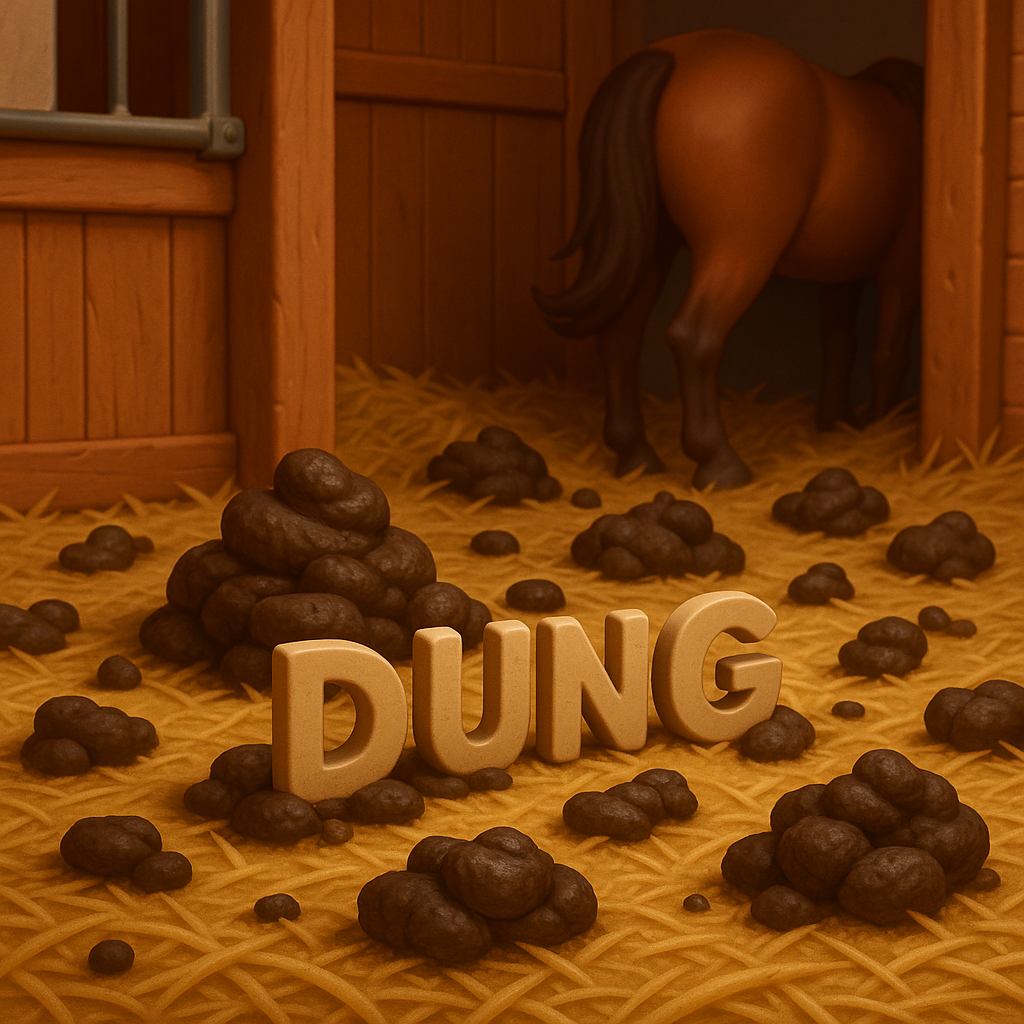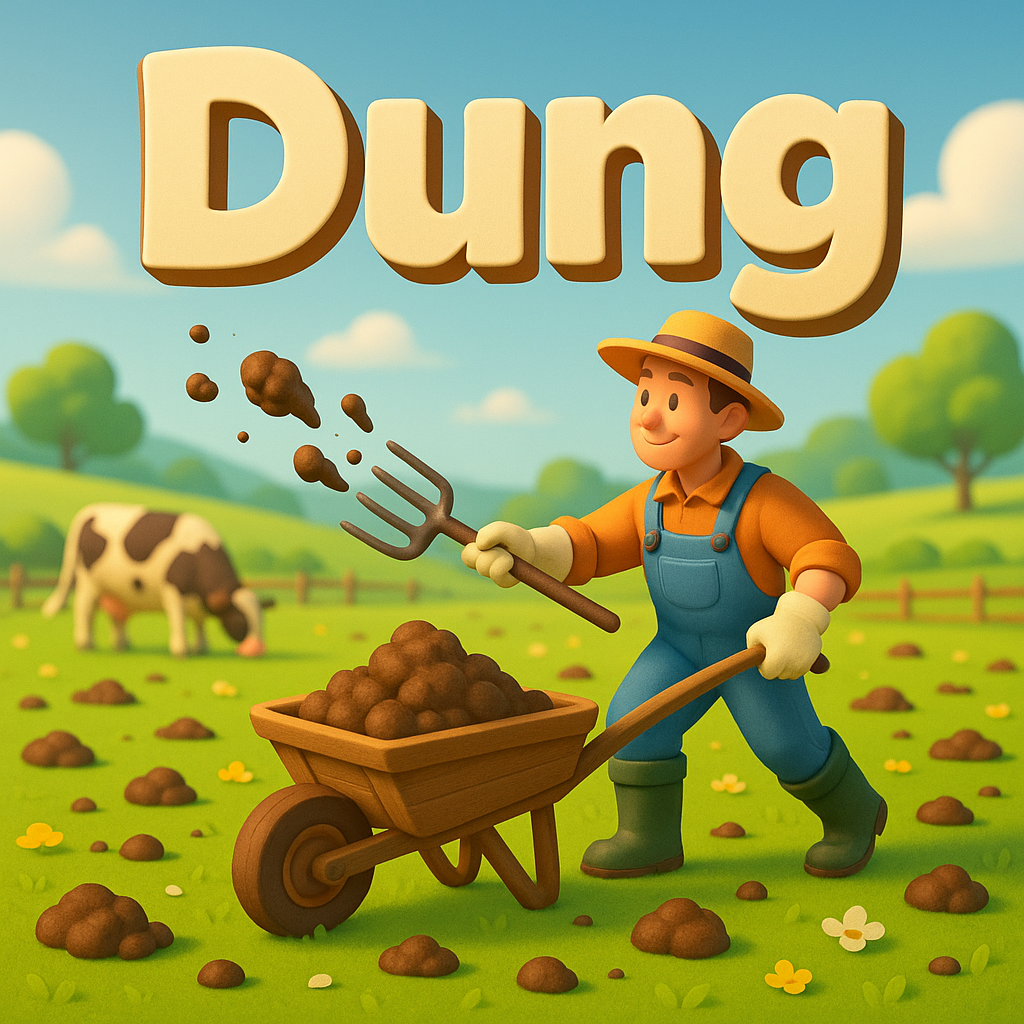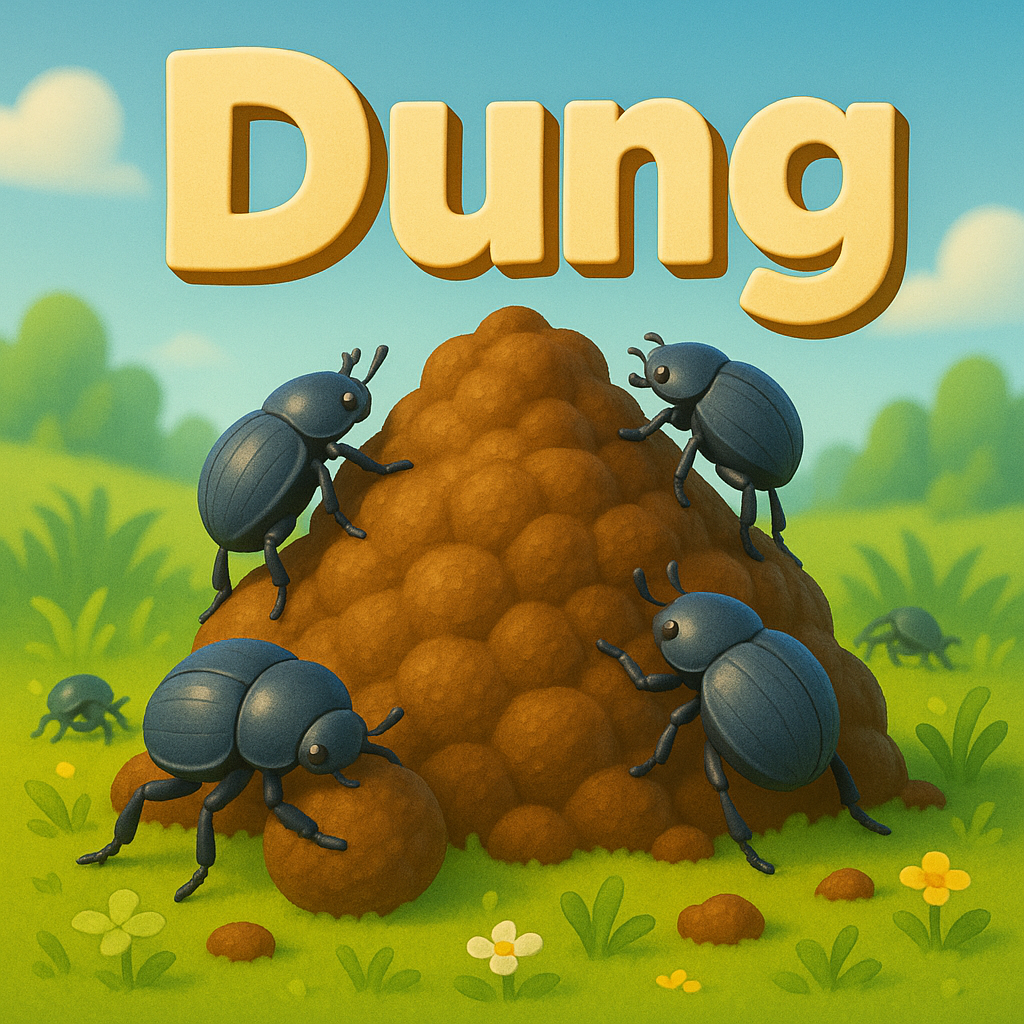Dung
Definition
Dung refers to the excrement of animals, especially herbivores; it may also denote animal excrement used as fertilizer. As a verb, it means to apply dung to land as manure. Its plural form as a noun is generally uncountable, but informally dungs or dung heaps may be used.
Parts of Speech
- Noun
- Verb (transitive)
Pronunciation
American English
- IPA: /dʌŋ/
- Respelling: DUNG
British English
- IPA: /dʌŋ/
- Respelling: DUNG
Etymology
Old English dung “excrement,” from Proto-Germanic *dungaz (cognate with Old Norse dyngja “dung heap”), of unknown ultimate origin.
Derivatives
- dunging (verb gerund)
- dunged (verb past)
- dungheap (compound noun)
Synonyms
- manure
- excrement
- feces
- droppings
- muck
Antonyms
- none
Usage
"The farmer spread fresh dung on the fields to enrich the soil."
"Dung beetles roll balls of dung to feed their larvae."
Related Terms
- Manure: Animal excrement used to fertilize land.
- Compost: Decayed organic material used as soil amendment.
- Fertilizer: Substance that adds nutrients to soil.
- Droppings: Animal excrement, often in small quantities.
- Muck: Wet, sticky soil or organic matter, including dung.
Detailed Definitions
Noun
- Animal excrement – the fecal matter produced by animals, especially livestock.
- Example: "The stall was littered with horse dung."
- Excrement used as fertilizer – animal dung applied to soil to improve fertility.
- Example: "They spread cow dung across the pasture in spring."
- A heap or pile of excrement – a mound or mass of dung.
- Example: "Dung beetles were busy around the dung heap."
Verb
- To apply dung to land as manure – to spread animal excrement on fields for fertilization.
- Example: "They dunged the vegetable beds before planting."
dung








